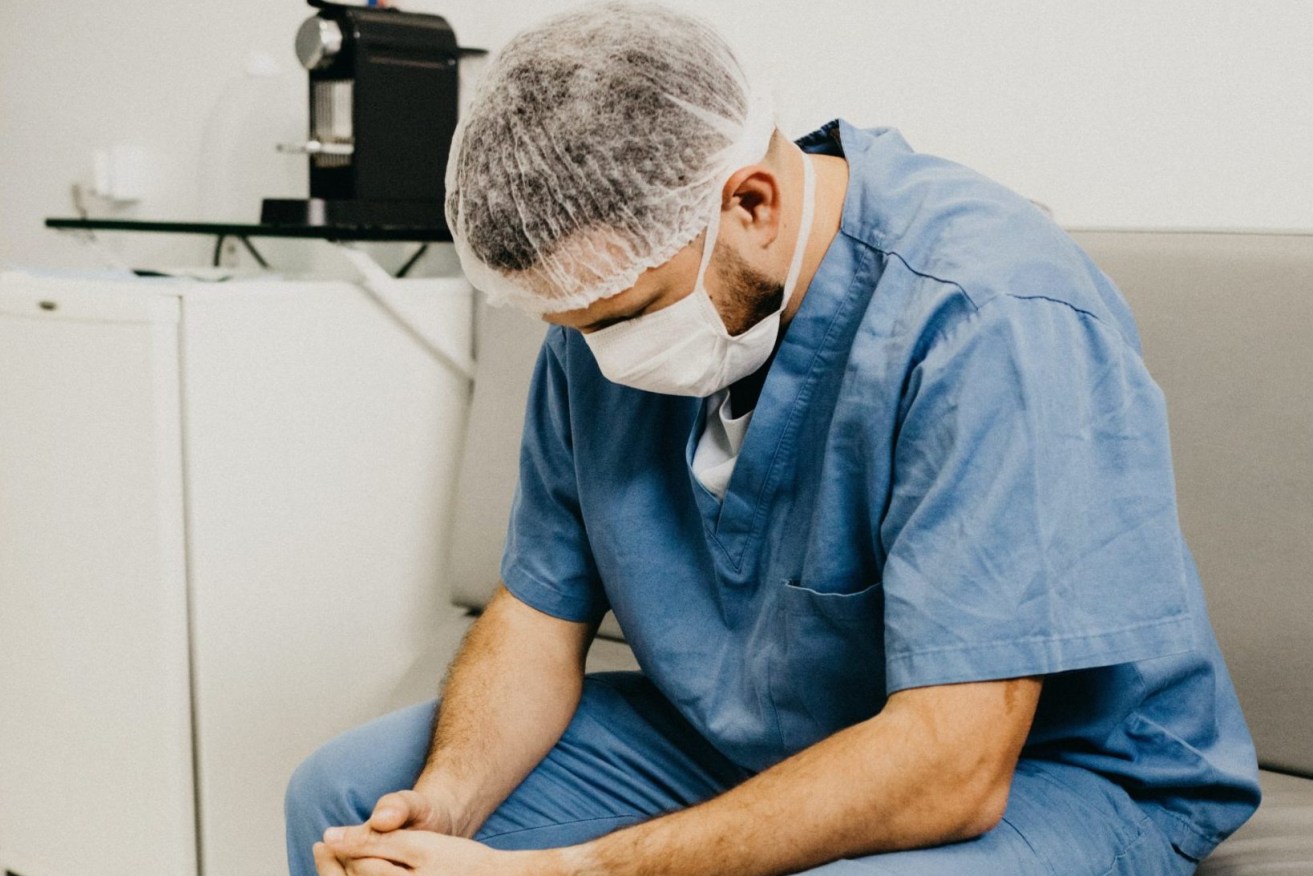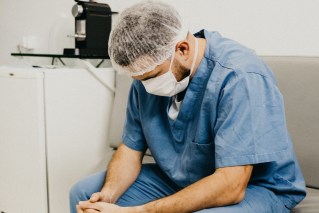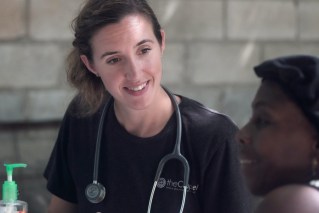Finding purpose in a swirling sea of uncertainty
Each day this month, we publish Tales of 2020, the stories of ordinary Queenslanders enduring an extraordinary year. Today, Dr Nathan Elmes explains the importance of finding purpose in the most unsettling of circumstances.

Medical graduates are turning their back on their commitment to work in rural and regional communities. (Photo: Unsplash)
It gives you purpose. These words became my mantra during the early phase of the COVID-19 pandemic. They were passed to me by a wheelchair bound retired teacher. She was trapped in a failing body but retained an acute mind.
At the time I was feeling the weight of the looming dark wave of uncertainty as it was becoming clear that the novel coronavirus was not just “another flu’. Maybe she sensed that weight on my shoulders as we shared a lift together at her nursing home.
Maybe it was just a throwaway line that she had used on her primary school classes over the years. Regardless, it was a line that resonated deep within me. A line to grasp as events way beyond my control swirled around us in an ever rapidly changing world.
It gives you purpose: I would repeat silently to myself as a steady stream of staff and patients appeared in my doorway with only one topic on their mind. It may have presented in a myriad of questions – some defensive, some contrary, and some downright ridiculous – but all underlined by the anxiety of dealing with the unknown.
I could see the anxiety etched on the faces of those around me. How do you counter something that is unseen yet omnipresent? Something that may be trivial but could be lethal.
How do you deal with people when every human interaction is seen through a prism of suspicion? Is this person going to make me sick? Will I then make my family sick? How will I cope if I have to take extended leave? How will my family cope if we cannot leave the house for two weeks?
The answer was information. Well researched, unbiased information presented in a way all those affected could understand. Reading multiple sources of literature became somewhat of an obsession.
The Lancet, The Centre for Evidence Based Medicine, John Hopkins University, and many more became regularly visited sites on my computer screen. Once the information was on board it became much easier to address people’s concerns.
The onset of the pandemic had found me as one of the established doctors in a large suburban general practice. We employ fifty-seven people as well as having several visiting allied health contractors.
I had an interest in travel medicine and tropical diseases, and a background in the military which included planning and risk assessment. So it was decided that I should take on the lead role on our pandemic committee, which comprised representatives from the doctors, nurses, reception, and administrative staff.
We had previously convened the committee on a much smaller scale and for much shorter time periods during the previous SARS and Swine Flu epidemics, but this time it quickly became apparent we would be needed for a much longer haul.
I recall in early February giving a brief presentation of what we knew about Coronavirus to the doctors at our monthly meeting. At that stage it was still seen as a remote threat and something that would likely require us to be alert but not alarmed. Within a month that attitude had completely changed.
One of our first acts was to gather all of the practice together (thankfully only days before distancing restrictions were announced) and have a presentation of the facts as we knew them. It was an opportunity to focus on our primary role, which was to continue to provide good quality care to our patients, whilst protecting them and our staff from becoming infected by the virus.
I feel that meeting helped our practice to find its purpose. We had all found a direction that had been quite obscured by fear until then.
All areas of the practice supported each other and whilst we all came under pressure at different times, people trusted that we had good systems in place and that we would prevail. That is not to say there were not challenges and constant change.
When people are under stress they can behave in unpredictable and unflattering ways. This was particularly felt by the reception staff who are at the very front of the frontline.
Conversely, there were also many patients who expressed sincere gratitude for the service we were providing. Sometimes, this even occurred after inflicting quite a deal of discomfort upon them when collecting swabs. It is even more remarkable considering we were dressed from head to toe in protective gear like an intimidating extra in a science fiction movie.
In the early days of our response, the pandemic committee met weekly, so all areas of the practice had an opportunity to voice their concerns and have them addressed. The frequency of meetings was important as the rate of change at that stage was disconcertingly rapid.
Maintaining such a collaborative approach gave us a great deal of flexibility and allowed solutions to be identified and shared in a timely and efficient manner. At the time of writing this, there has been a period of stability and a sense of things returning to normal.
While it may be the “new normal”, it is still a welcoming glimpse of a sustainable future for our practice family. The challenges remain with us still.
There will undoubtedly be more obstacles to overcome. My hope is that by having an inclusive approach that respects all of the participants we will remain agile enough to maintain our progress. That remains our purpose.
Dr Nathan Elmes is a Brisbane-based GP with a special interest in travel medicine and travelling – which he hopes to resume soon. He is married with two children.
This article was first published in Stories from the Heart, an e-book edited by Dr Johanna Skinner and editor Jane Connolly, and is republished with their permissio












